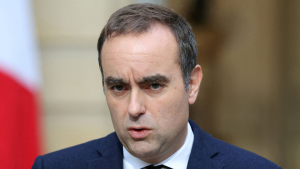
The Federal Government of Nigeria has reaffirmed its commitment to decriminalising attempted suicide, targeting December 2025 for the reform.
This announcement was made by the Coordinating Minister of Health and Social Welfare, Prof. Muhammad Pate, during a press briefing in Abuja to mark the 2025 World Suicide Prevention Day.
Globally, over 720,000 people die due to suicide every year, with it being the third leading cause of death among those aged 15 to 29. About 73 percent of these suicides occur in low- and middle-income countries.
In Nigeria, attempted suicide remains criminalised under Sections 327 and 231 of the Criminal and Penal Codes, which has discouraged individuals in distress from seeking help and increased stigma.
To address this, the government inaugurated a National Taskforce on the Decriminalisation of Attempted Suicide in October 2024, chaired by Prof. Cheluchi Onyemelukwe.
The taskforce’s mandate is to guide Nigeria’s transition from a punitive approach to a compassionate, public health-oriented response.
A government white paper on the issue has been finalized, and a draft amendment bill to the National Mental Health Act 2021, now the National Mental Health Act Amendment Bill 2025, has been developed.
This bill seeks to repeal punitive provisions, prohibit the prosecution of suicide survivors, and provide for care and psychosocial support.
The draft bill has been adopted as the official position of the Ministry of Health, and statutory consultations are ongoing with the Attorney-General and Minister of Justice.
The next step will involve presenting a memo to the Federal Executive Council to transmit an Executive Bill to the National Assembly.
Permanent Secretary Daju Kachollom emphasised that criminalising suicide attempts does not save lives but worsens stigma and deters help-seeking. The government’s goal is to promote a humane, health-centred response to suicide.
The reform aligns with global best practices, treating suicide as a public health concern rather than a criminal offense. Nigeria currently ranks seventh globally in suicide cases, accentuating the urgency of adopting these reforms.
Evidence shows that raising public awareness, early identification of warning signs, improved access to mental health care, and compassionate community support can significantly reduce suicide rates.







